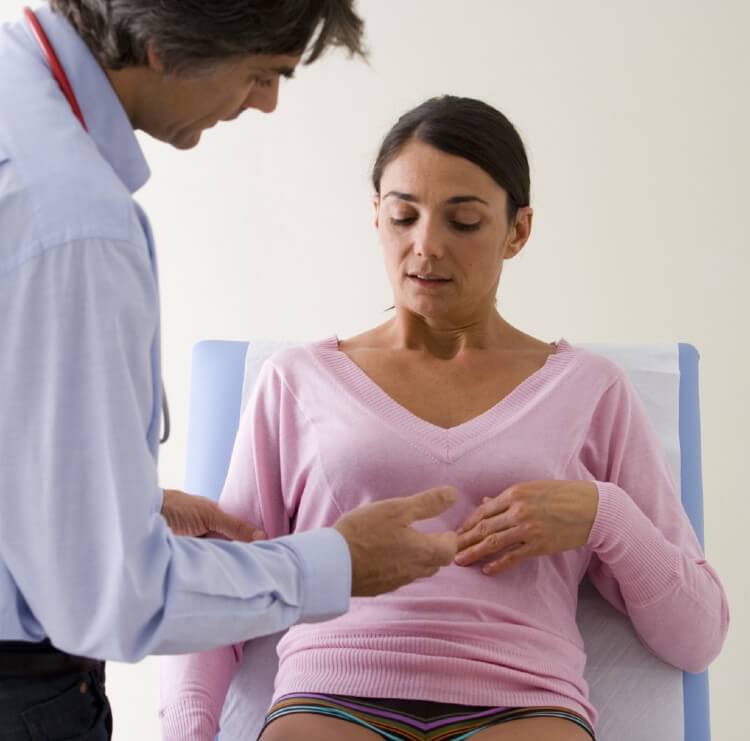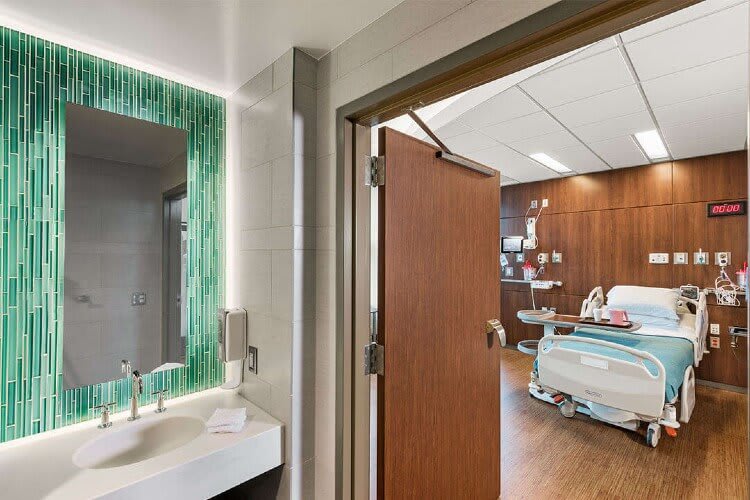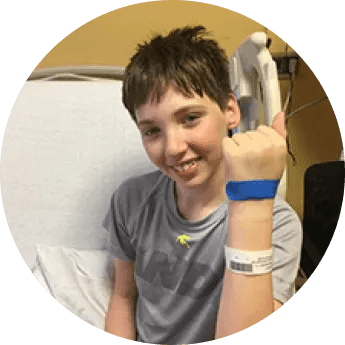What is MALS?
Median arcuate ligament syndrome (MALS) is a congenital anatomic anomaly, meaning it is a structural aberrance present at the time of birth. In MALS patients, the back part of the diaphragm is too low, causing the median arcuate ligament to push against the celiac artery. This compression also affects the nerves of the celiac plexus, a bundle of sensory nerves located around the artery. The pressure on the artery may cause a change in blood flow, while the pressure on the nerves causes them to become inflamed and send pain signals to the brain. Over time, the inflammation increases, and the nerves are chronically activated. Patients are often unable to eat due to pain/nausea and many lose weight.
Signs & Symptoms of MALS
Pain in MALS patients is located between the ribs and below the sternum. Pain can also radiate to the sides, back and chest. Pushing on this area will increase the pain. Additional symptoms of MALS may include: pain after eating, fatigue after eating, nausea, vomiting, weight loss, constipation, and diarrhea.
Learn More About Dr. Hsu

Dr. Richard C. Hsu is a board-certified general and vascular surgeon, whose academic credentials include a PhD in Neuroscience from Yale University, surgical training at Stanford and Harvard Universities, and research positions at the National Institutes of Health and the John Hopkins University School of Medicine. His areas of interest include open and endovascular management of complex arterial aneurysms, peripheral arterial occlusive disease, extracranial cerebrovascular disease, venous occlusive disease, and venous hypertension.
Dr. Hsu is recognized as a leader in the management of MALS. He has performed over 1,000 MALS surgeries over the past 20 years with a 90% pain relief rate. Patients travel from all over the world to see Dr. Hsu.
READ MORE ABOUT DR. HSUTo Schedule a Consultation Call: 203.276.4898
Our Approach
If you’re suffering from MALS, our goal is to offer relief for the debilitating abdominal pain it can cause.
MALS Surgery: What to Expect
- There are several tests needed to diagnose MALS: CT scan of abdomen and pelvis with IV contrast; physical exam; and a celiac plexus nerve block.
- The initial step prior to surgery is an appointment (either in person or phone consultation) where Dr. Hsu will review scans to determine if a patient has the anatomy and symptoms persistent with MALS.
- If you’re a candidate for this procedure, there is a confirmatory diagnostic test: a celiac plexus nerve block. This is done at Stamford Health’s Interventional Radiology Department, and it takes about four to six hours. Patients are monitored during this time, and they’re encouraged to bring their favorite foods to see if they can consume a large meal pain free after the block.
- If the nerve block is successful, this indicates a diagnosis of neurogenic MALS and corrective surgery is an option.
- The surgery itself takes approximately two hours. Patients usually stay in the hospital for five days. (Most patients experience great relief within 90 days after surgery.)
Meet Susan M. Conklin
Patient Stories
MALS Surgery FAQs
-
How do you know if you’re a candidate for MALS surgery at Stamford Health?If you are experiencing persistent and severe symptoms related to median arcuate ligament syndrome (MALS) that have not improved with non-surgical measures, you may be a candidate for MALS surgery at Stamford Health. Dr. Hsu’s team assesses the intensity of your symptoms and considers various factors to determine eligibility for surgery.
-
Is MALS surgery performed as an outpatient procedure or requires hospitalization?MALS surgery at Stamford Health requires hospitalization. The decision is influenced by various factors, including the complexity of the procedure and the individual patient’s health. Our priority is to ensure a safe and comfortable environment for each patient throughout their surgical experience.
-
How long is the recovery period after MALS surgery?The expected recovery period after MALS surgery varies for each patient, but 5-7 days in the hospital is typical. Patients are advised to stay in the local area until post-operative follow-up appointments. Our medical team will provide detailed postoperative care instructions, including information on physical activity, dietary considerations, and any necessary restrictions. Follow-up appointments will be scheduled to monitor progress and address any questions or concerns.
-
What does the follow-up care involve after MALS surgery at Stamford Health?Follow-up care after MALS surgery is crucial for monitoring your recovery progress. Individualized follow-up care is provided to assess your well-being, address any concerns, and ensure optimal long-term outcomes.
-
How might your lifestyle change after MALS surgery?MALS surgery at Stamford Health can bring positive changes to your lifestyle. Following a successful procedure, patients often experience relief from symptoms, increased energy levels, and an enhanced overall quality of life. Dr. Hsu’s team will provide guidance on potential lifestyle adjustments, including dietary recommendations, to support your well-being after surgery.
-
Are there support groups or resources for individuals with MALS at Stamford Health?Yes, Stamford Health recognizes the importance of support throughout the recovery journey from MALS surgery. For personalized information and guidance, you can speak directly to your doctor, who can provide tailored insights based on your unique needs.







